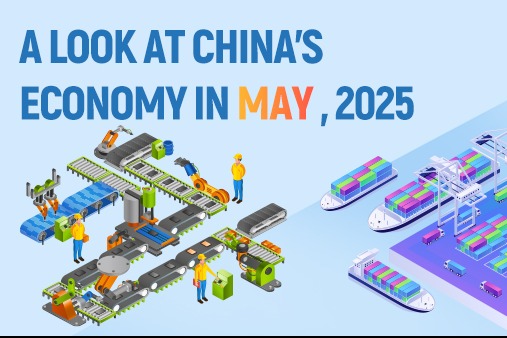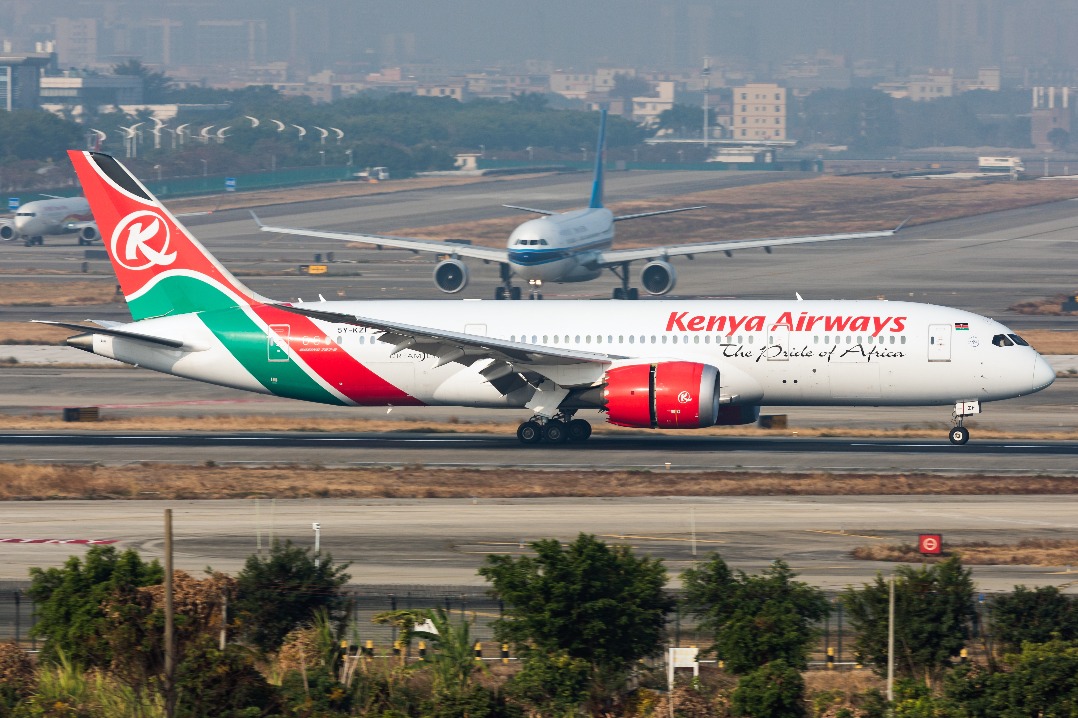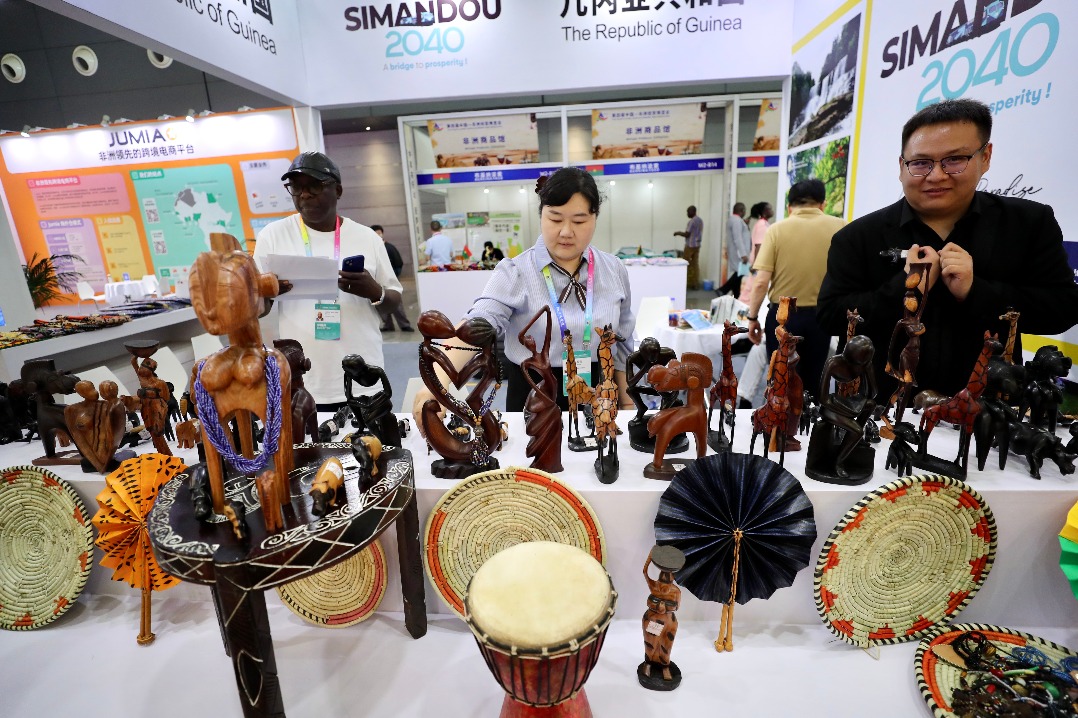'New battlefield for innovation competition'


Amid hype and skepticism, metaverse spawns talk that it might emerge as digital "soul" of factories
A metaverse frenzy is gripping China with tech heavyweights and startups already seeing it as the next trillion-dollar business opportunity. But, in the background, ordinary people wonder what the fuss is all about, while some experts are ringing the alarm bell over potential pitfalls and implications to society of overindulgence in virtual worlds, especially by the younger generations.
For the uninitiated: A metaverse is basically a digital space created by technologies like virtual reality and augmented reality-VR and AR. As a concept, it is still nascent. There is still no universally acknowledged definition of metaverse, but many people consider it as the next-generation internet.
Experts said the term is hot, not least because it has been overhyped. But, to fully grasp the evolving story, it is important to go beyond the current focus on VR games and entertainment.
Metaverse's real potential, knowledgeable sources said, lies in its ability to promote integration of virtual and tangible worlds. When such potential is realized, it could not only change, even transform, lifestyles, but create great opportunities for industrial upgrades.
Yu Jianing, executive director of the metaverse industry committee at the China Mobile Communications Association, a Beijing-based industry association, said metaverse is not just about creating a virtual world.
"It promises a future where the virtual world and the physical world are inextricably interconnected, which will give rise to new businesses and inject a fresh impetus into the integration of digital and real economies," Yu said.
"Metaverse is becoming the new battlefield for innovation competition among companies."
Chinese tech heavyweights and startups are all moving fast into the metaverse realm. For instance, Chinese tech behemoth ByteDance, the owner of popular short video app TikTok, made its first foray into VR in August by acquiring Pico, a Chinese VR headset maker.
WeChat, a social networking platform of Tencent Holdings Ltd, held its first 360-degree virtual reality livestreaming last month. Meanwhile, online search giant Baidu Inc, which has evolved into a tech specialist with focus on artificial intelligence, said it will hold an AI developer conference in the metaverse later this month.
As of Nov 26, more than 960 companies filed trademark applications involving metaverse in their names in China. That marks a staggering rise from 130 companies two months earlier, according to Tianyancha, a business information provider.
Metaverse-related online learning programs are also overwhelmed by people eager to learn more about the buzzword in China. For instance, more than 54,000 people have subscribed to one online metaverse learning program as of Nov 26, bringing total sales to more than 1.6 million yuan ($251,283).
That might seem like a slow and steady evolution from 1992, when the term metaverse was coined by science fiction writer Neal Stephenson of the United States in his novel Snow Crash.
But interest in metaverse snowballed after US gaming company Roblox included the word in its IPO prospectus in March and ended its first trading session with an eye-popping $38 billion market capitalization. But since then, Roblox's shares have been on a roller-coaster ride, casting a long shadow on the hype surrounding metaverse.
In October, however, Mark Zuckerberg, chief executive officer of the company that owns digital assets such as Facebook, WhatsApp and Instagram, made a bold move by rebranding the parent entity as "Meta". That helped put metaverse under intense global spotlight instantly.
Jiao Juan, an analyst at Essence Securities, a Chinese securities company, said the metaverse frenzy comes amid a profound economic shift-the added value of the internet has peaked and started to fade.
Meanwhile, technologies like AI, cloud computing, 5G networks and storage have all developed to a certain level and appear to have found synergies that could unleash a new digital evolution in the form of metaverse.
To be sure, there are already stock bubbles building around the concept of metaverse, with some investors getting too optimistic about the idea, Jiao said.
Such hype, however, cannot conceal the potential metaverse has to spawn businesses worth trillions of dollars. To make it a reality, long-term efforts are needed to develop supporting technologies, application scenarios and business models, Jiao added.
Agreed Pedro Palandrani, a tech analyst at research company Global X ETFs. "A truly immersive experience of metaverse, for instance, engages all of a person's senses: sight, hearing, touch, smell and taste. Today, VR mostly involves surround sound and images."
Alvin Wang Graylin, president of HTC China, a global pioneer in VR, also said, "We are still five to 10 years away from a metaverse."
But Graylin highlighted that the interest in metaverse has helped the public realize that VR technology is not just for gaming, but has other applications too, covering all aspects, including manufacturing, healthcare, education and work.
He said that after HTC Corp unveiled its latest VR glasses, the Vive Flow, in October. Being compact, lightweight and immersive, the Vive Flow weighs about the same as a chocolate bar and its dual-hinge design and soft face gasket allow it to fold into a compact shape for effortless portability.
That is important to facilitate the development of metaverse, as easy entry points of VR are needed to involve as many people as possible into a virtual world, experts said.
Sensing the rosy prospects of metaverse, countries are also moving fast to promote its growth. For instance, the Seoul Metropolitan Government recently announced plans to establish Metaverse Seoul, a next-generation platform that will include a virtual city hall, tourism locations and social service centers.
Meanwhile, China's Ministry of Industry and Information Technology seems to lay emphasis on leveraging metaverse to boost the development of real economies. The ministry said last month it would soon unveil new policies to quicken the industrial use of virtual reality.
Yu from the China Mobile Communications Association said, "The biggest potential of metaverse lies in its industrial use."
For instance, the factories of the future will have a soul-a "digital twin", namely the digital counterpart of the tangible world-that can blend man and machine in stunning new ways, Yu said.
According to him, in the future, software developers can simulate every aspect of manufacturing operations in a digital twin factory, or a metaverse where engineers and designers from all over the world can collaborate in real time and jointly carry out product planning, designing and other complex work.
"By simulating the feasibility of tasks in a digital twin factory and then implementing it in reality, it can greatly reduce operating costs and boost efficiency," Yu said.
In fact, part of the digital twin factory has already been realized in BMW's most advanced automated factories, which are powered by US tech company Nvidia's Omniverse Enterprise platform. The platform can enable global 3D design teams to work together simultaneously across multiple software suites in a shared virtual space.
"With the rapid technological development, the real economy will embrace metaverse, which will bring profound economic changes and revolutionize industrial upgrade. That will be crucial to China's push for innovation-oriented growth and technological strength in the decades to come," Yu said.





































